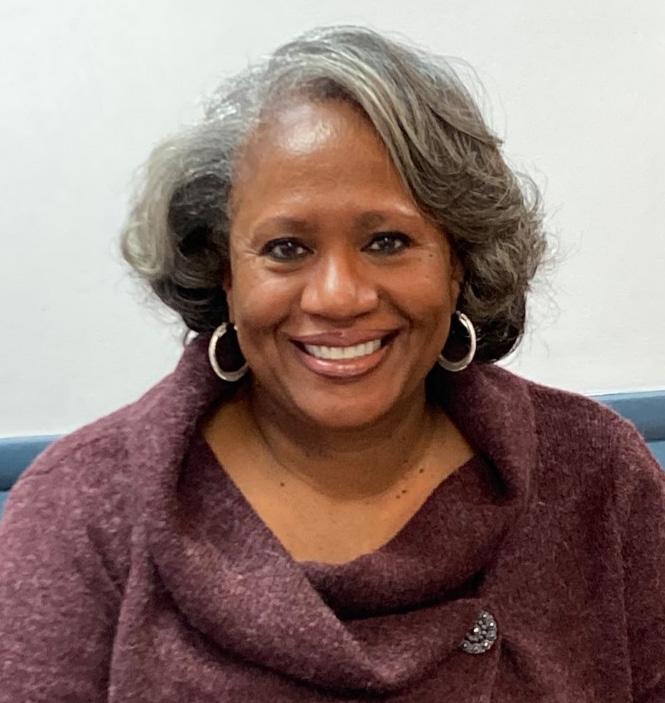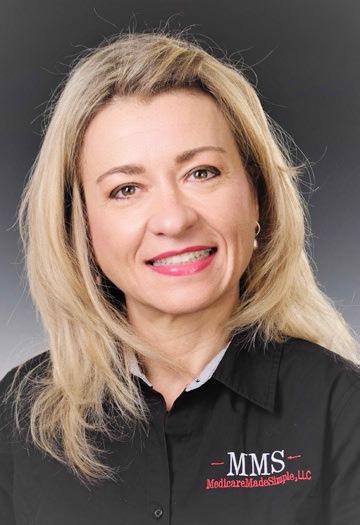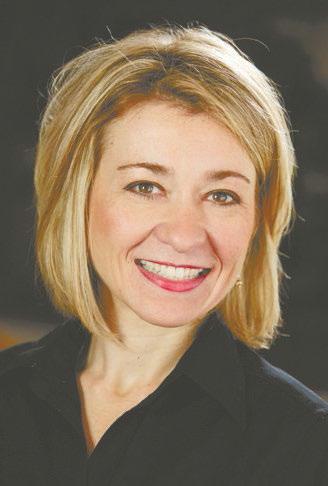
3 minute read
Q & A with Lisa Alford


Advertisement
ACR Health CEO discusses how the nonprofit went from focusing on people with HIV AIDS to treating a broader population, including those who abuse drugs, need housing, food and more
By Mary Beth Roach

Q: Early on, your agency was called AIDS Community Resources.
A: The reason we now utilize the name ACR Health is because our role and focus are broader than HIV and AIDS. The need for the types of services that we provide has expanded beyond just those with HIV AIDS to those with various complex and chronic health conditions. We’re going to help you get into services or make referrals to those services, but also help you get there; food; referrals for housing. We provide housing subsidies for certain clients.
Q: What is your coverage area, your budget, the number of employees, and the number of clients?

A: In a year, we probably serve about 16,000 clients because we cover a nine-county region. (Cayuga, Herkimer, Jefferson, Lewis, Madison, Oneida, Onondaga, Oswego and St. Lawrence.) We have offices in Syracuse, Utica and the North Country in Watertown. We just opened our own Q Center in the Watertown area. We have about 120 staff between those three office areas. Our budget is about $10 million.
Q: How are you funded?
A: A large percentage is state-funded grants. We do have some that are federally-funded and some local funding and our partners and donors who join us. Our biggest fundraiser has been our AIDS Walk/ Run that we have every June.
Q: How has the COVID pandemic affected your agency’s delivery of services?
A: Everything was being done remotely. You didn’t have people coming for testing. Obviously, that created a problem. They saw it across the nation, across the state, where people were still having sex and not necessarily making healthy sexual options. So you had increases in certain STIs and STDs that they had not seen in years, like syphilis and gonorrhea.
It certainly was very challenging for people with chronic health conditions to be isolated.
What I will tell you, though, is that lessons that have been learned during the AIDS epidemic were many of the things they utilized during the COVID pandemic — that you need to talk to communities, you need to use data regarding where you’re seeing spikes and trends, where people need access to testing, and in this case, PPE, things to keep themselves safe and utilizing community ambassadors that are trusted messengers.
Q: Are you seeing more of your efforts being focused on substance abuse issues versus HIV, AIDS and STDs?
A: I would say, we’ve got both. The pandemic caused spikes in certain STIs and STDs because places were closed and we weren’t doing some of that testing for a while. And certainly, the opioid epidemic has been a huge piece. The Narcan trainings, working with local governments when they have had spikes in overdoses. That certainly has expanded exponentially. We also have funding in our youth and family services area, where we’re providing training to professionals throughout the state.
Q: What do you see for your agency for 2023?
A: The opioid epidemic — I certainly see our work in that area continuing to increase and in the harm reduction field and how might we expand. There are areas that we’re not reaching. We want to identify and develop partnerships and relationships with those groups.

I certainly see continuing to expand care management.
I want us to be an employer of choice for people that want to work with the communities we serve. And I also want to be an agency of choice for clients. I want people to have good experiences when they come to ACR Health.
Q: Can you briefly describe the programs and services that ACR Health provides?
A: ACR Health is a nonprofit organization. We provide comprehensive health services to people in the community to help them maximize their health and achieve optimal well-being. The ways in which we do that are through our various programs. We have a prevention department, where we go about providing education as well as testing for various STIs [sexually transmitted infections] and other diseases. We provide items that will help people reduce their risk of obtaining, developing or contracting STIs or STDs. We also have our harm reduction department, which helps persons that may be using drugs. We do education; we train people on overdose use techniques, such as Narcan and we will provide Narcan for people to utilize. We also provide clean or safe needles for persons that may be drug users. We provide referrals to various treatment programs in the community. We have a clinic where we partner with organizations to provide medication-assisted treatment for persons. We also provide some acute care as well. We have our insurance department and provide information about health insurance options for folks and help them get signed up. We have our youth and family services. Folks are probably most familiar with the Q Center for LGBTQ+ youth in the community. It’s a safe space for them to come and just be themselves, but also to develop life skills, education and training. Also, a care management area, where we provide care management and case management services for persons that are dealing with HIV, as well as other chronic health conditions, helping to make sure that they are accessing services they are eligible for, so they can manage their health conditions. Obviously, it’s much more cost-effective to help people manage health conditions than it is to treat them after they are in a much more acute stage.









